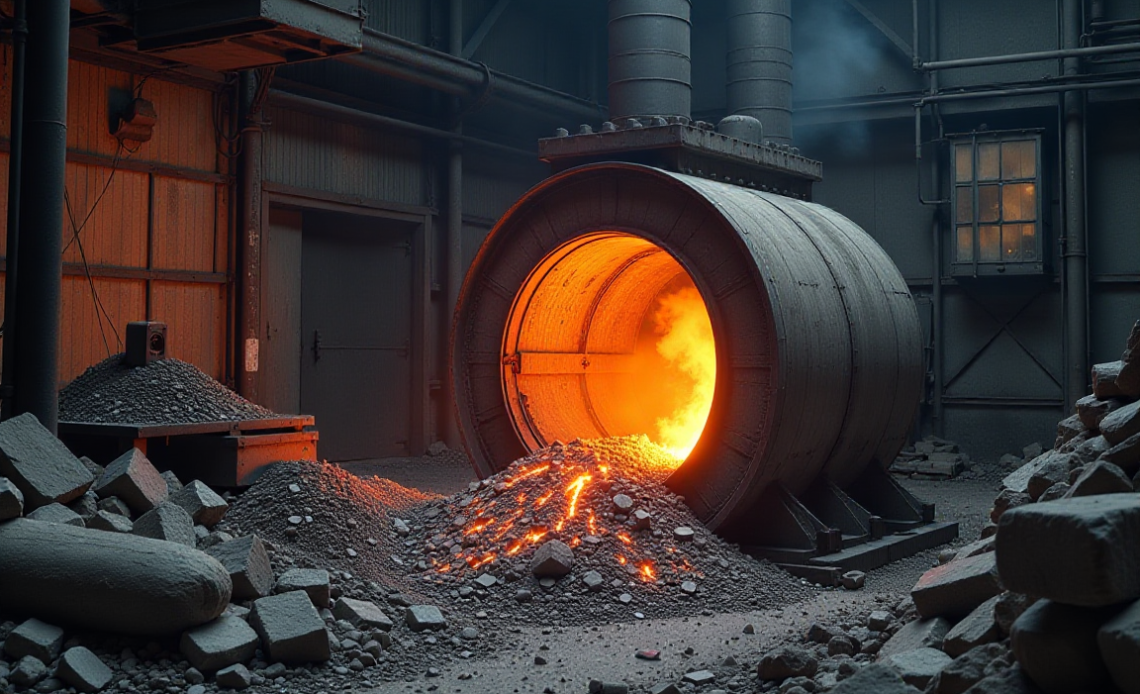
Metal producers within the European Union are urging the bloc to implement export duties or restrictions on scrap metal shipments.
This push, expected “in the next few weeks,” aims to counteract a significant rise in exports to the US, a trend attributed to the trade policies of the Trump administration, according to a Reuters report.
Due to a 50% tariff imposed by US President Donald Trump on imported steel and aluminum, the demand for tariff-free scrap has surged, leading to significantly inflated prices.
This situation is causing concern among Europe’s metal producers, who are now warning of a scrap shortage and a disruption to their carbon-emission strategies.
To curb outflows, the EU is being urged by the aluminum industry to implement export authorisation measures, a tactic previously employed only during the COVID-19 pandemic for protective gear and vaccine exports.
Export tariffs present an alternative solution.
Eurofer director general Axel Eggert highlighted that “scrap is a significant problem.”
Eggert was quoted as saying in the Reuters report:
We are asking for an export duty on scrap.
He further highlighted that most non-EU producer countries had restrictions in place.
Imports and exports
To support the EU’s carbon emission reduction goals in the metal industry, scrap metal is crucial.
The European Commission highlights that recycling aluminium saves up to 95% of the energy needed for its production, and 80% for steel.
In the first quarter of 2025, US imports of scrap metal from the EU surged to 6,028 metric tonnes, nearly tripling from the previous year, according to European Aluminium.
This significant increase, though from a low starting point, represents a transformation from a minor flow to a substantial one.
Overall, EU aluminium scrap exports reached 345,000 metric tonnes in the first quarter of this year.
With the US now retaining more of its scrap, the EU is poised to become the primary exporting region.
Trade agreement to take time
EU metal producers have long viewed scrap exports as a growing concern, even preceding the imposition of duties on primary steel and aluminium imports by Trump, which aimed to boost US domestic production.
In 2023, a record 19 million tonnes of ferrous scrap were exported from the EU, with Turkey being the main destination.
Other significant destinations included India, Egypt, Pakistan, and the United States, as reported by the European steel association Eurofer.
Paul Voss, head of European Aluminium, stated that metal producers cannot afford to wait for the bloc to finalise a trade agreement with Trump.
European officials have indicated that a comprehensive deal may not be achievable by Trump’s deadline.
Export authorizations had not been previously utilized in this manner, but extraordinary circumstances necessitate extraordinary action, Voss added, advocating for measures in the coming weeks.
Carbon footprint
The EU, a staunch advocate of free trade, rarely imposes export restrictions.
Historically, such controls have been limited to pandemic-related measures, arms shipments, dual-use products with military applications, and goods destined for sanctioned countries.
The European Commission is actively engaging with metal producers and recyclers to assess the market.
A determination on whether trade measures are necessary for steel, aluminium, and copper is expected in the third quarter.
US metal producers have been incentivised by tariffs to maximise their domestic scrap metal purchases and explore overseas markets.
According to industry players, a temporary price difference of around $750 per ton, known as an “arbitrage window,” emerged due to the 50% tariff.
Rob van Gils, CEO of Austria’s Hammerer Aluminium Industries, said in the report:
If that arbitrage window stays, we will see massive damage to companies that invested the most into the Green Deal.
He was referring to the EU’s green policy agenda, which aims to guide the bloc toward carbon emission neutrality by 2050.
Van Gils highlighted a potential challenge for companies reliant on scrap purchases.
He said if local scrap costs approach or surpass the market price of the final product, these companies may be forced to procure primary metal from other nations, such as India, leading to increased carbon emissions.
European scrap sellers are against export restrictions. According to EuRIC, the recycling industry group, Europe has no scrap shortage.
They state that the EU’s demand for steel only accounts for approximately 80% of the available supply.
The post EU metal producers push for export curbs on scraps amid US demand surge appeared first on Invezz






